
Doctoral College Santander Mobility Awards | Long Chen Awardee Report

Latest research and knowledge exchange news at Bournemouth University

The third issue of RKE News is now available. The purpose of the newsletter is to provide a termly update of internal and external research and knowledge exchange news, successes and opportunities.
This issue focuses on research at BU and BU2025, some of the many funding opportunities which are available and upcoming events.
I hope this information is helpful and of interest to you. If you would like to send in any stories or ideas for inclusion or if you have any feedback in general, please let me know.
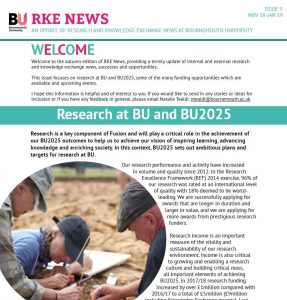

As we are gearing up for REF 2021, BU’s Research and Knowledge Exchange Development Framework (RKEDF) has organised multiple events over the next few weeks on relevant topics such as improving the quality score of research output, impact basics, developing impact case study, and impact case study writing retreat. Having att ended these events before I strongly believe that these are very helpful with lots of relevant resources.
ended these events before I strongly believe that these are very helpful with lots of relevant resources.
On top of that, I would like to remind you that the HSS writing community in Brightspace has dedicated ‘Impact’ section to help BU researchers make strong impact case study. For example, many of us wonder what a 4 star impact case study looks like? In answer, the impact section now includes real impact case studies related to the Unit of Assessment (UoA) 2, 3, and 20 with 4 star ranking from the REF 2014. Links are also provided for additional high ranking case studies. In addition, guidance on impact case studies for main Panel A (UoA 2, 3) and Panel C (UoA 20), and other tips and information for writing impact case studies are also available.
Please be in touch if you require any help or want to discuss on your proposed impact case study.
Dr. Nirmal Aryal, Postdoctoral Researcher (Impact)
Faculty of Health & Social Sciences
In the last few weeks, members and a PhD Student from the Ageing and Dementia Research Centre (ADRC) have attended the latest dementia conferences and an awards ceremony.
28th Alzheimer Europe Conference, Barcelona (Spain)
Prof Jane Murphy, Dr Michele Board and Yolanda Barrado-Martín attended the 28th Alzheimer Europe Conference (29th to 31st October 2018). Jane presented a paper on her nutrition research ‘Innovative training to improve nutrition and hydration in people living with dementia’. Dr Michele Board presented a poster ‘Evaluating the impact of the virtual reality app “A walk through dementia” on students learning and practice’ centred on her research funded by Alzheimer’s Research UK. Whilst Yolanda presented a poster ‘What are the views of people living with dementia and their informal carers getting involved in Tai Chi?’ based on the findings from her PhD project which forms part of the TACIT Trial.

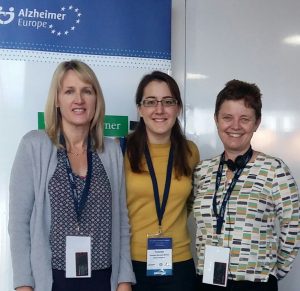

During the conference, over 800 international researchers met in Barcelona to learn about research, policy and practice around the theme ‘Making dementia a European priority’. Amongst the attendees to the conference, there were also people living with dementia and their carers who took the floor in different sessions. The main aim of those living with dementia was that they want to be involved in decision making processes in their day-to-day life and care, including their participation in research (i.e., advocating for co-creation approaches). Specific themes of the conference covered policies, care approaches and services for people living with dementia and their carers, as well as their rights in our society, and strategies to prevent and treat dementia.
13th Annual UK Dementia Congress, Brighton
Prof Jane Murphy, Dr Michele Board, Dr Michelle Heward and Dr Ben Hicks attended the 13th Annual Dementia Congress (6th and 8th November 2018). Dr Michelle Heward presented a poster on the ‘implementation and evaluation of the Dementia Education And Learning Through Simulation 2 (DEALTS 2) programme’ a project funded by Heath Education England (HEE) to develop and evaluate an education toolkit for acute care settings. During the first plenary session, Minister of State for the Department of Health and Social Care Caroline Dinenage MP highlighted that “staff training for dementia is increasing with programmes like DEALTS 2”. As part of the dissemination funding for the DEALTS 2 programme, Michelle and Jane were also invited to talk to conference attendees visiting the HEE stand about the programme evaluation. Dr Michele Board presented her research funded by Alzheimer’s Research UK in a paper ‘Evaluating the impact of the Virtual Reality app ‘A Walk-Through Dementia’ on year one health care students’ clinical practice’. Dr Ben Hicks presented a paper ‘Game Plan: promoting gaming technology amongst dementia practitioners’ based on his European funded research.


The annual conference attracts practitioners, academics and people with dementia and carers to discuss the latest innovations and research in the dementia field. The motion this year was ‘the right to services is more important that disability rights for people with dementia’ and stimulated a dynamic exchange of opinions during the many plenaries, parallel sessions and workshops
9th National Dementia Care Awards 2018, Brighton
Following the Dementia Congress, on the 8th November Dr Michelle Heward and Dr Michele Board were invited to represent the DEALTS 2 team at the National Dementia Care Awards, following the programme being shortlisted for the Best Dementia Care Award. The evening was full of glitz and glamour with the dress code ‘black tie’. Following a three course meal, finalists and the winners of the 14 categories were announced and celebrated. We had a fantastic night celebrating the hard work and dedication of so many individuals and teams from the dementia field, and although we did not win the category, we were delighted to be shortlisted for this prestigious national award.
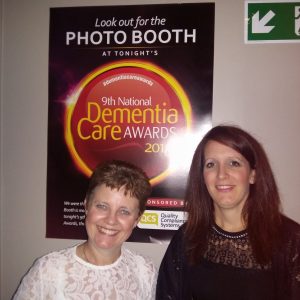
Attendance at these events was a great opportunity to showcase some of the current research projects being undertaken by the ADRC team, hear the views of those living with dementia and their carers, and network with practitioners and researchers in the dementia field.

Reports of disability hate crime are on the increase. Research has found that changes to the incapacity benefits following the economic crash have been a contributing factor. Disabled people are now commonly perceived and framed as fraudulent ‘scroungers’ and ‘skivers’ and victimised as a result. Victims of hate crimes describe the inadequate, offensive and inappropriate responses from the criminal justice system that have created a sense of secondary victimisation. The impact of this on disabled communities is extensive, including moving home, acceptance of hate crime as a part of life, and more. So, what can be done?
In this talk, Dr Jane Healy, will be discussing hate crime experienced by people with disabilites. We will also be joined by the Mental Health Zone who will be discussing how to report hate crime at university.
When: 22nd November 2018
Where: F108, first floor of the fusion building
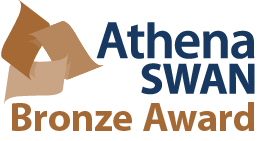 Here is the latest BU SWAN newsletter containing a summary of the information, activities and progress related to gender equality and SWAN work at BU from July to October 2018 . This includes information about the Department of Media Production’s Bronze SWAN Award, the work being undertaken to develop a BU Menopause Policy, and information about our high-profile research-active women in STEMM (celebrated as part of Ada Lovelace Day).
Here is the latest BU SWAN newsletter containing a summary of the information, activities and progress related to gender equality and SWAN work at BU from July to October 2018 . This includes information about the Department of Media Production’s Bronze SWAN Award, the work being undertaken to develop a BU Menopause Policy, and information about our high-profile research-active women in STEMM (celebrated as part of Ada Lovelace Day).
You can also access BU’s Career Development Factsheet
Recent SWAN information on the Staff Intranet:
Department of Media Production achieves a Bronze SWAN Award
Information about BU’s flexible working policies
An article about Prof Sara Ashencaen Crabtree’s passion for gender equality
Dr Paola Vizcaino explains how she had benefitted from the career support on offer at BU for an ECR

CoPMRE held its Fifteenth Annual Symposium Globalisation and Healthcare: Opportunities and Challenges in October. The conference was a success thanks to the inspiring speakers and received excellent feedback. You can read a full report on the conference here and authorised presentations can be found here.
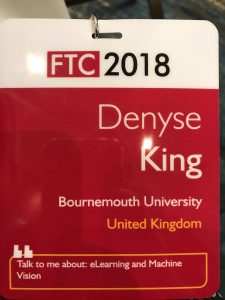 Congratulations to Denyse King, who is currently attending the Future Technologies Conference, FTC 2018; Vancouver, BC; Canada (15-16 November). Her conference paper ‘NoObesity apps – From approach to finished app’ has been published in Advances in Intelligent Systems and Computing [1]. Denyse is part of the Centre for Midwifery, Maternal & Perinatal Health (CMMHP) where she is a Lecturer (Academic) in Midwifery based at BU’s campus in Portsmouth ,
Congratulations to Denyse King, who is currently attending the Future Technologies Conference, FTC 2018; Vancouver, BC; Canada (15-16 November). Her conference paper ‘NoObesity apps – From approach to finished app’ has been published in Advances in Intelligent Systems and Computing [1]. Denyse is part of the Centre for Midwifery, Maternal & Perinatal Health (CMMHP) where she is a Lecturer (Academic) in Midwifery based at BU’s campus in Portsmouth ,
Obesity is still a growing public health problem in the UK and many healthcare workers find it challenging to have a discussion with service users about this sensitive topic. They also feel they are not competent to provide the relevant heath advice and are seeking easily accessible, evidence-based, mobile health learning (mHealth). mHealth applications (apps) such as the Professional NoObesity and Family NoObesity (due for release late 2018), have been designed to: support families with making sustainable positive behaviour changes to their health and well-being, ease pressure on practitioners’ overweight and obesity care related workloads, as well as to support the education of professionals, students and service users. This paper describes the process of designing the apps from the inception of the idea, through the stages of research, app builds and testing. The processes of collaborative working to design and develop the apps to meet the needs of both service users and health professionals will also be reflected upon. Childhood obesity is an complex problem and whilst it is recognised that the NoObesity apps cannot singlehandedly resolve this health crisis, it is proposed that they can support families to identify and reduce the barriers that prevent them from living healthier, happier lives.
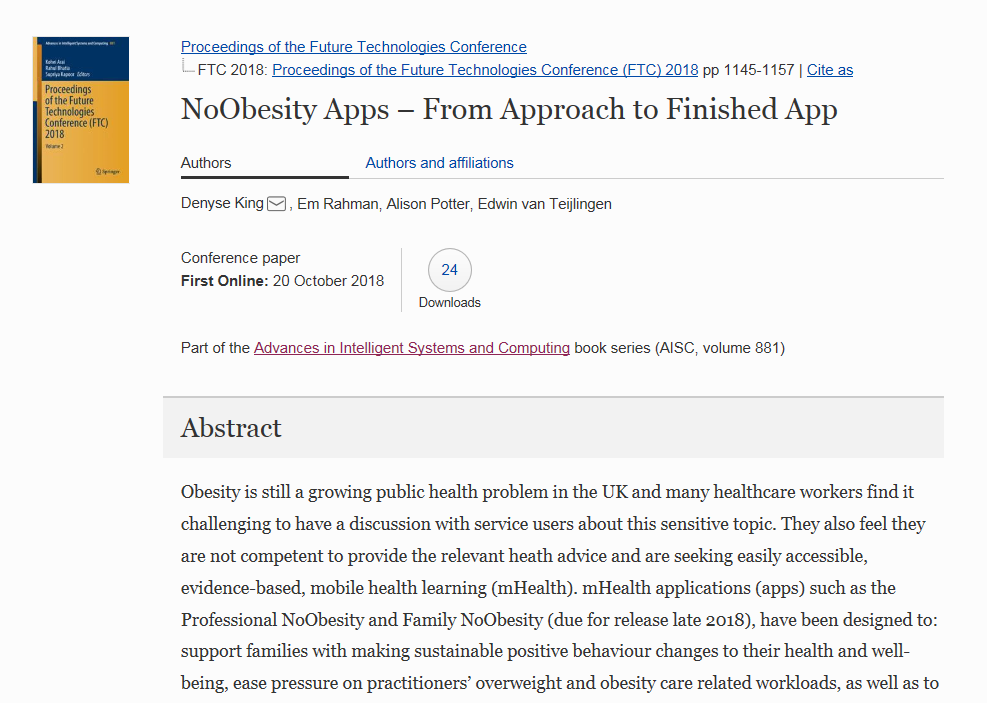
King D., Rahman E., Potter A., van Teijlingen E. (2019) NoObesity Apps – From Approach to Finished App. In: Arai K., Bhatia R., Kapoor S. (eds) Proceedings of the Future Technologies Conference (FTC) 2018. FTC 2018. Advances in Intelligent Systems and Computing, vol 881. Springer, Cham, pp. 1145-1157.

 The Prestigious Funders scheme was launched in August 2017, revised in February 2018 and October 2018. The revised policy document can be found here or on the BU staff intranet under ‘policy/ research/ pre-award’.
The Prestigious Funders scheme was launched in August 2017, revised in February 2018 and October 2018. The revised policy document can be found here or on the BU staff intranet under ‘policy/ research/ pre-award’.No retrospective requests will be considered (i.e. any applications submitted before 25 October 2018 who now meet the new eligibility criteria will not be able to apply). The scheme continues to be open for applications where BU lead and where we are a Co-Investigator to another institution, as long as the eligibility requirements are met.
Please read the full scheme document for clarification of the above. You will need time to build this into your application and so please speak with your RKEO Funding Development Officer as soon as you think you might meet the eligibility criteria for either pathway.
Are you currently in the process of designing, setting up or planning your research study, and would like to extend your project into the NHS?
Yes? Then you may want to take advantage of this training opportunity.
Oliver Hopper (Research & Development Coordinator, Royal Bournemouth and Christchurch Hospital) and Suzy Wignall (Clinical Governance Advisor, R&KEO) will be running a training session on how to use, and complete your own application within the IRAS system.
IRAS (Integrated Research Application System) is the system used to gain approvals from the NHS Research Ethics Committee and Health Research Authority, before rolling out your study to NHS Trusts. To support this, the session will include the background to research ethics and the approvals required for NHS research.
The session will also be interactive, and so as participants, you will have the opportunity to go through the form itself and complete the sections, with guidance on what the reviewers are expecting to see in your answers, and tips on how to best use the system.
The training will take place in Studland House – Lansdowne Campus, room 102 on Wednesday 5th December, at 09:30am – 12:30pm.
Get in touch with Research Ethics if you would like to register your interest and book a place.
Three weeks ago I had a pleasure and amazing opportunity to attend and engage with fantastic research training – the 4th European University Association (EUA) Funding Forum. The forum took place in one BU’s current and established Erasmus+ links – the Universitat Ramon Llull (Barcelona, Spain).
The 4th EUA Funding Forum, titled ‘Frameworks that empower, universities that deliver’ has primarily focused on macro-level changes that affect models and processes that EU universities traditionally apply.
The opening talk by Joseph Garrell I Guiu, Rector of Ramon Llull University (Spain); Jose Manuel Pingarron Carrazon, Secretary General of Universities (Spanish Ministry of Science, Innovation and Universities) and Rolf Tarrach, President of the European University Association, highlighted the roles of Higher Education Institutions (HEIs) in a deeper engagement with social issues. This naturally can be done via education. However, research and business engagement would require different models of thinking in relation to funding. Investments should be attracted from elsewhere and with the purpose of HEIs being at forefront of sustainable living. BU with its new BU2025 vision and strategic plan puts a large emphasis on responsibility. However, to deliver an evidence-based impact would require reconsideration of processes and in many cases steeping out of the HE comfort zone and take risk by implementing different but importantly efficiency-based approaches.
Following the opening talk, Thomas Estermann, Director, Governance, Funding and Public Policy Development at EUA has presented astonishing statistics on how various HEIs within the EU operate in terms of attracting investment and students. Photo below show extract from the slides, presented by Thomas Estermann.
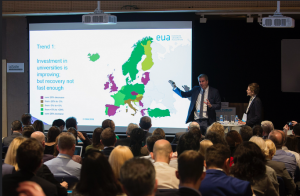
4th EUA Forum, Thomas Estermann
Thomas Estermann stated that the UK has a 20% decrease in attracting any sort of investment that supports HE sector. This is mainly driven by a lesser exposure to funding opportunities that the UK had access to but also nation-wide issues with decreasing student numbers. This left me wondering what can be done to minimise the gap.
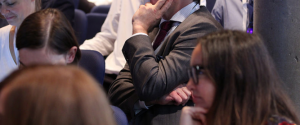
Elvira Bolat, 4th EUA Forum
The event took place over two days, 18-19th October, and was an amazing opportunity to meet a frontline of EU HEIs’ leadership. Combination of plenary sessions and masterclasses offered the participants, not only an opportunity to network, but hear stories of ‘brave’ approaches to leading and managing HEIs and to learn about i.e. new types of partnerships within the HE context that can generate funding to support HEIs’ missions or importance of integrating business intelligence systems and management structures to inform HEIs’ processes.
One of my favourite talks was a panel formed by Mikulas Bek, Rector of Masaryk University (Czech Republic); Francisco Jose Mora Mas, Rector of Universitat Politecnica de Valencia (Spain) and Petra Wend, Vice-Chancellor of Queen Margaret University (United Kingdom).
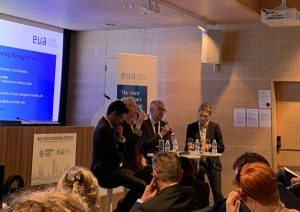
The 4th Funding Forum Plenary Panel I
The panel shared personal professional stories of their HEIs’ journeys in tackling financial uncertainty. It was quite refreshing to see how HEIs are moving, although I must admit this is a slow follow-up on some comprehensive business models, towards evidence-based decision-making via data mining and data-based intelligence. It is uplifting for me to witness the shift in HE leadership mindset, as my and Dr Gelareh Roushan’s PhD student, Claudia Vanzellotti, is exploring how for instance social media intelligence is embedded into small and medium sized enterprises’ (SMEs) strategic decision-making. In era of Big Data HEIs ought to observe trends around own sector but also other related and unrelated contexts which will spark ideas for efficient processes and funding models that will generate impact. Listening to students and open consented online conversations is also something educators should be doing in order to adapt pedagogical models and deliver effective and exciting education experiences.
Overall, attending the 4th Funding Forum had a number of immediate benefits for me:
Of course following BU’s Fusion I would like to reflect on some teaching and pedagogical lessons I gained from attending the 4th Funding Forum. In particular, I learnt about new TEL tool, Sli.do, that is alternative to Mentimeter and Kahoot and allows engaging large groups of students via Q&A feeders or group discussions to stimulate a better understanding and critical thinking around the content. I already experimented with the Sli.do during several talks in October/November 2018 period and found it easy to use, from both facilitator and audience perspectives. In addition I am planning to use the interviewing / conversational approach to Panel session discussions during the conference that Dr Kaouther Kooli, Dr Julie Robson and I are co-organising with the University of Manouba in Tunis this December.
Last but not least the training, funded by Erasmus+, enabled me to meet and network with the host institution’s colleagues. BU’s Business School has a long lasting and successful relationships in terms of staff and student mobility with the Universitat Ramon Llull (URL). URL is located in fantastic location, Barcelona, and has amazing facilities which are combined by modern architecture and historical buildings.
Quite impressed by Ramon Llull University campus. It is our Business School’s @BUAACSB1 current Erasmus partner so I recommend all students to consider coming and spending a semester abroad here @GlobalBU pic.twitter.com/K6zcm7qY9G
— Dr Elvira Bolat👩🏻💻👩🏻🏫🤳🏻💡🏃🏼♀️🏖 (@Elvira_MLady) October 18, 2018
URL did truly amazing job with hosting the 4th Funding Forum, showcasing its facilities, professionalism of staff and students and warm hospitality of Catalonian capital.
Overall it has been an amazing experience, which will feed into many more exciting professional projects for me personally but also for the Department of Marketing, the Business School and BU. To conclude this post, I would like to leave you with this slide:

The 4th EUA Funding Forum: Presentation by Thomas Estermann
To survive, HEIs need to experiment, expand their external networks and defend their autonomy.
If you wish to experience something new, learn, network and enhance your knowledge in areas of research and/or education, and/or professional practice, I would highly recommend applying for the Erasmus+ Staff Mobility Training funding.
Elvira Bolat, Principal Academic in Marketing (The Business School), e-mail: ebolat@bournemouth.ac.uk
Congratulations to Dr. Miguel Moital, Principal Academic in the Department of Events & Leisure, who has just published a co-created paper in Sport Management Review, an Elsevier journal which boasts an impact factor of 3.5 and an acceptance rate of 17%. The paper is co-authored with two BA (Hons) Events Management graduates – Amy Bain and Harriet Thomas – who did their dissertation on prestigious sports events.
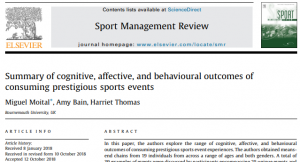
The paper explores the range of cognitive, affective, and behavioural outcomes of consuming prestigious sports event experiences. Amy and Harriet underpinned their dissertations on the Prestige Motivation Model, a model Miguel co-developed in 2009. Miguel covers the model in his Consumer Experience & Behaviour unit (Level 5) and in their dissertation both students went on to apply the model to sports events. Amy and Harriet did a very similar study with a difference: Amy focused on a variety of prestigious sports events, while Harriet focused on VIP sport event experiences. The two studies were combined to produce the now published paper. The full paper can be found here.
Commenting on the experience Amy said
“I’m delighted that my research has been published. I went to a great deal of effort to ensure that the subject of my dissertation was not only interesting and current, but a true and accurate reflection of the impact of prestige as a motivation to attend events. For me personally the most exciting part about the process was seeing the paper evolve in a way that it clearly demonstrates the potential of prestige to generate important outcomes for the attendee and the event organiser.”
Harriet was also delighted to have co-authored the paper:
“I’m so proud to see the research I conducted for my dissertation now included within the Sports Management Review journal- it’s something I never expected! I was really interested in the previous work carried out by Miguel on Prestige Motivation in Tourism and this acted as a starting point when deciding on my dissertation topic. The process was certainly a challenging one, and I had to edit, re-word and revisit my work many times throughout, so persistence was definitely key! The project soon started to come together and it’s so rewarding now to see I’ve contributed to an article within a top academic journal.”
Miguel said:
I am thrilled to see this paper published in a high quality journal, which gives credit to the quality of the work carried out by Amy and Harriet. I have covered prestige motivation in my consumer experience & behaviour unit since 2009, but the research on which this paper is based has greatly enhanced the content of the lecture, fulfilling an important gap in the module while at the same time inspiring other students to carry out further research on the topic. I am a strong believer in students-as-researchers and this paper in a top sport management journal is a great way of celebrating my 10th journal article co-created with BU undergraduate and post graduate students.
This paper is part of a long tradition within the Department of Events & Leisure involving the co-creation of papers based on student dissertations. In the past five years students and staff of the Department have published co-created papers in Event Management (Cognizant), the International Journal of Event & Festival Management (Emerald), the Journal of Fashion Marketing & Management (Emerald), Young Consumers (Emerald), and the Journal of Hospitality & Tourism Insights (Emerald). These publications are a testimonial of the high quality research carried out by events and leisure graduates.
Congratulations to Dr Clare Killingback on her inspirational pedagogy article on assessment feedback. Enhancing the student experience through systematic inquiry along with Dr Osman Ahmed and Dr Jonathan Williams. https://www.sciencedirect.com/science/article/pii/S0260691718308785?via%3Dihub
Dr John Oliver (FMC) requires a research assistant to work on a British Academy funded project, starting in early January.
The project involves a longitudinal analysis of Corporate Annual Reports using the qualitative software package NVivo. The first stage of the research will involve up to 150 hours of work paid at Grade 6. The successful applicant will be an experienced NVivo user and proficient in English Language.
For further details or an informal chat, please contact Dr John Oliver (FMC) via the following email address (joliver@bournemouth.ac.uk)
Two major reports out this week covering value for money and international students plus all the excitement and intense debate from Wonkfest. Enjoy!
The Education Select Committee have published their inquiry report on Value for Money in Higher Education. The committee calls on both universities and the Government to ensure better outcomes for students, expand degree apprenticeships, make university more accessible to a more diverse range of students and tackle Vice-Chancellor pay. Here are the key recommendations taken from the report: (more…)
